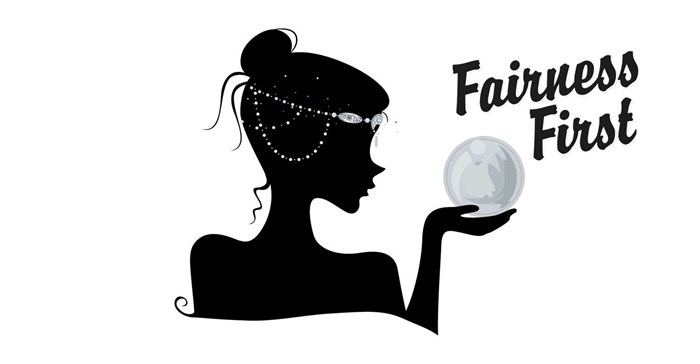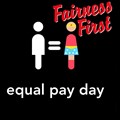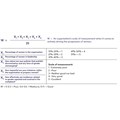#FairnessFirst: Females, here's how to future-proof your career...

PPS, the financial services company focused on graduate professionals, says the Fourth Industrial Revolution is well and truly here, and those without the relevant skills for the future workplace are at risk.
That’s neither fake news nor a scare tactic, as the most recent version of the WEF Gender Gap Report - released at the end of each year, so we are still working on 2017's figures - shows 5.1m jobs will be lost between now and 2020, with the potential knock-on effect that the economic gender gap will potentially widen beyond the current 40%.
So it’s certainly time to scramble and upskill yourself to stay relevant, especially as the WEF Report adds that women are under-represented when it comes to jobs which are expected to have the most growth in the next five years.
But all is not lost. Here, Seboni explains the effects and opportunities the Fourth Industrial Revolution presents, particularly for women…
 Let’s start with the context of the Fourth Industrial Revolution. What does this mean in 2018?
Let’s start with the context of the Fourth Industrial Revolution. What does this mean in 2018?
Words such as “disruption”, “disruptive innovation” and “exponential technologies” have become a normal part of business jargon in the recent past. Few businesses these days go away on strategic off-sites without talking about possible disruption, about new markets and value networks enabled by new technologies, and what this means to the future of their organisations.
But what is true for businesses is also true for professions. New technologies are affecting every known profession.
It is pushing us to think differently about careers, to remain eternal students. Old ways of doing things, indeed, certain jobs, become extinct and new jobs and possible careers are created. It’s uprooting the way we think and behave, day-to-day.
The opportunities for innovation have never been greater. We’re experiencing a shift from an economic model based on scarcity to one of abundance, where the professionals who seize the leading-edge tools available to them can jump ahead of the curve.
It’s therefore imperative for us to do four things: Honing in on that aspect, which specific skills do we need to work on today to ensure relevance in the future workplace?
Honing in on that aspect, which specific skills do we need to work on today to ensure relevance in the future workplace?
As professionals in an ever-changing world, we essentially need to future-proof our careers. We have jobs today that we had never even heard of 20 years ago, and some of the jobs we have now will not exist in 20 years’ time.
We need to give women more challenging jobs and for them to understand the skills required to succeed. Elaborate on the WEF Gender Gap Report and the implications of this for female workers.
Elaborate on the WEF Gender Gap Report and the implications of this for female workers.
Although the report shows that all the world regions have recorded a narrower gender gap than they did 11 years ago, there is still much that needs to be done by corporates and government to accelerate progress and gender parity in the areas of economic participation opportunity, educational attainment, health and survival, and political empowerment.This also presents an opportunity for women to create new career paths and differentiate themselves. It’s important that businesses recognise that tackling barriers to equality can unlock new opportunities for growth, which will only be achieved through collaboration and a holistic approach from the top.
At PPS, we are dedicated to raising the number of female graduate professionals by deliberately including them in our Bursary Programme and Graduate Programme, both run by the PPS Foundation.
 Fantastic. What else can companies and brands of today do to better balance the outcome?
Fantastic. What else can companies and brands of today do to better balance the outcome?
A deliberate effort is required by companies to interrogate their own people practices and pay gaps when it comes to men and women. People-centred work practices are important in building equal societies.
A white paper published by Yellowwood, called the Female Equation, demonstrates how women are better for business.
They have the ability to significantly impact the performance of business and, by extension, the economy as well. It’s not a job for the private sector only, but government, too.
We all have to challenge gender-based social constructs and stereotypes, and deliberately innovate for women.
 Definitely. On that note, what more can females do, to better empower themselves in this regard?
Definitely. On that note, what more can females do, to better empower themselves in this regard? In the boardroom, it can seem that many women don’t have a voice, not because they don’t have anything to contribute, but because they feel they only need to give their views when asked.

When you’re given a seat at a table, own it in full, own your voice and share your perspective. Often, it’s not an angle most men have thought about, but if it’s a good idea they will listen to it.
Don’t be afraid to make yourself heard, especially if it’s something you feel passionately about. Speak for your work and don’t expect it to always speak for you.Women are the most committed and diligent workers, and tend to be deeply hurt when the rewards associated with their efforts are not recognised.
Your work is impressive yes, and it ‘speaks for itself,’ but speak about it and tell people what you have achieved. Also, tell them the expectations you have. Men speak directly about their salary and bonus expectations, whereas women tend to be coy and secretly resent unfair treatment.
Lots to think about as we get deeper into the disruptive Fourth Industrial Revolution. Click here for more on PPS' commitment to female empowerment in the workplace, and follow PPS’ Twitter and Facebook feeds for the latest updates.












































